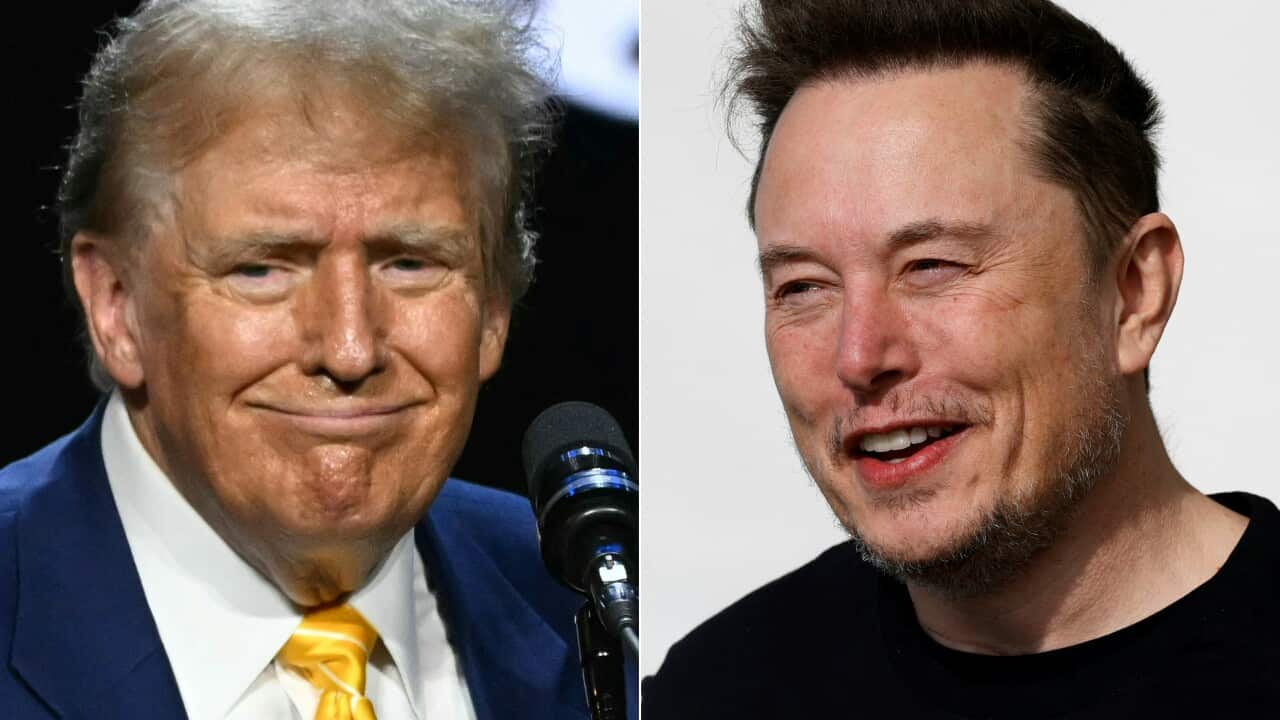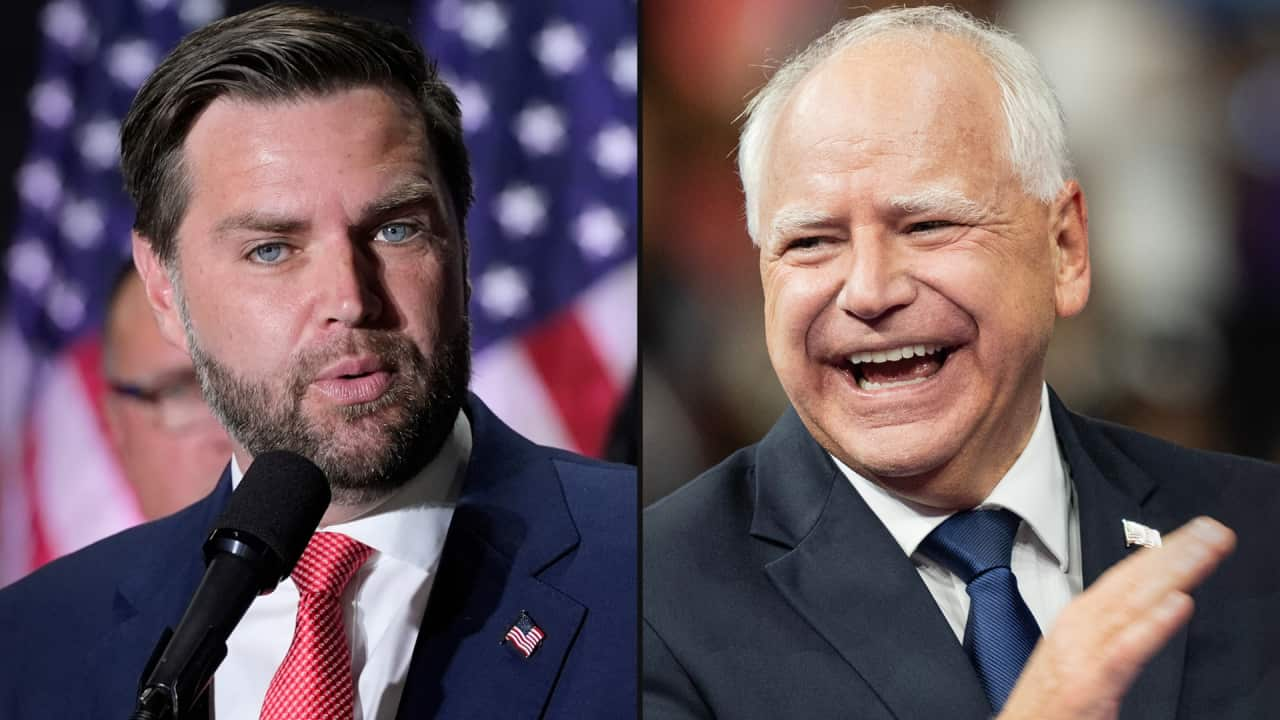United States Republican presidential candidate Donald Trump largely stuck to familiar campaign themes in a live X interview with the social platform's billionaire owner Elon Musk that was initially beset by technical problems.
The site showed that the page was "not available" shortly after the scheduled start time of 10am AEST for some users, though more than 1.3 million people appeared to have joined successfully after a 40-minute delay.
Musk — who has recently become an influential supporter of the Republican US presidential candidate — the technical issues were caused by a DDOS attack, saying that he had tested the system earlier in the day with eight million concurrent listeners.
DDOS stands for distributed denial of service, which occurs when a site is flooded with traffic in an effort to overwhelm the servers on which the site is hosted and thus make it inaccessible.
What was said in the Musk-Trump interview?
When the conversation eventually started, Musk said the "massive attack illustrates there's a lot of opposition to people just hearing what President Trump has to say".
It's a convention in the US to sometimes refer to former presidents using their previous titles.
Musk then asked Trump to recount the story of his and Trump obliged, despite having in July that he would only speak about it once.
Trump described his survival as a "miracle" and said his campaign would be returning to the town in which the rally took place in October.
Musk publicly endorsed Trump just minutes after the assassination attempt.
The pair then discussed immigration, with Trump criticising the performance of Democratic presidential candidate and current vice-president Kamala Harris, whom he referred to as the US "border czar" and "in charge" of the border.
but was tasked with addressing the "root causes" of migration from the Central American countries of Guatemala, Honduras and El Salvador.
Trump said he would seek to deport one million illegal immigrants from the US if re-elected.
Musk repeatedly said that immigrants from all across the globe, not only from South American countries, were arriving in America from the southern border.
At the end of the conversation, Musk said he had "not been very political before" and that it was "absurd" for some to paint him as "far-right". He described himself as "historically a moderate Democrat".
But he said he believed a second Trump presidency promised "an exciting future".
"I think we're in massive trouble with a Kamala administration," Musk said.
"I think it's essential you win for the good of the country."
How Elon Musk became a Donald Trump supporter
Trump and Musk have not always seen eye to eye.
Musk once criticised Trump for dismissing the challenge of climate change.
In June 2017, five months into Trump's presidency, because the administration withdrew from the Paris Agreement, a landmark 2016 international treaty aiming to tackle climate change.
"Climate change is real," Musk wrote at the time. "Leaving Paris is not good for America or the world."
After Trump lost his 2020 reelection bid, Musk told Fortune magazine he was "super fired up" about President Joe Biden's climate change agenda and optimistic "about the future of sustainable energy".
But the tech billionaire — the founder and chief executive of the electric car brand Tesla — turned against Biden.
The US president has long had a publicly pro-union stance, while Musk has expressed anti-union views on several occasions. Biden also did not invite the Tesla owner to a 2021 electric vehicle summit.
Trump has been a long-time critic of electric vehicles but he shifted gears after receiving Musk's endorsement.
"I'm for electric cars. I have to be, because Elon endorsed me very strongly. So I have no choice," Trump said at an early August rally.
Trump's troubled Twitter timeline
Trump used X, previously called Twitter, during his political rise and presidency but was banned after a mob of his supporters .
Musk reinstated Trump's account after buying the platform in 2022, but the ex-president only returned to post once, preferring instead to share his unfettered thoughts on his own platform, Truth Social.
Since buying Twitter and changing its name to X, Musk has become increasingly focused on priorities shared with the Republican hard right, voicing anger over the supposed censorship of conservatives and spreading inflammatory and false news stories about immigration.
Trump has 88.2 million followers on X while Musk has 193.9 million.
Tuesday's interview wasn't the first time a major X event has experienced technical difficulties.
In May 2023, Musk hosted the launch campaign of Trump's Republican rival, Ron DeSantis, on X — but the website crashed during the interview.
Ahead of the Trump interview, Musk said he would be testing X's system and posted two videos of himself gaming.
Some X users reported seeing advertisements pop up supporting Trump.
X and the Trump campaign did not immediately respond to a request for information on whether there had been a pro-Trump ad buy.












